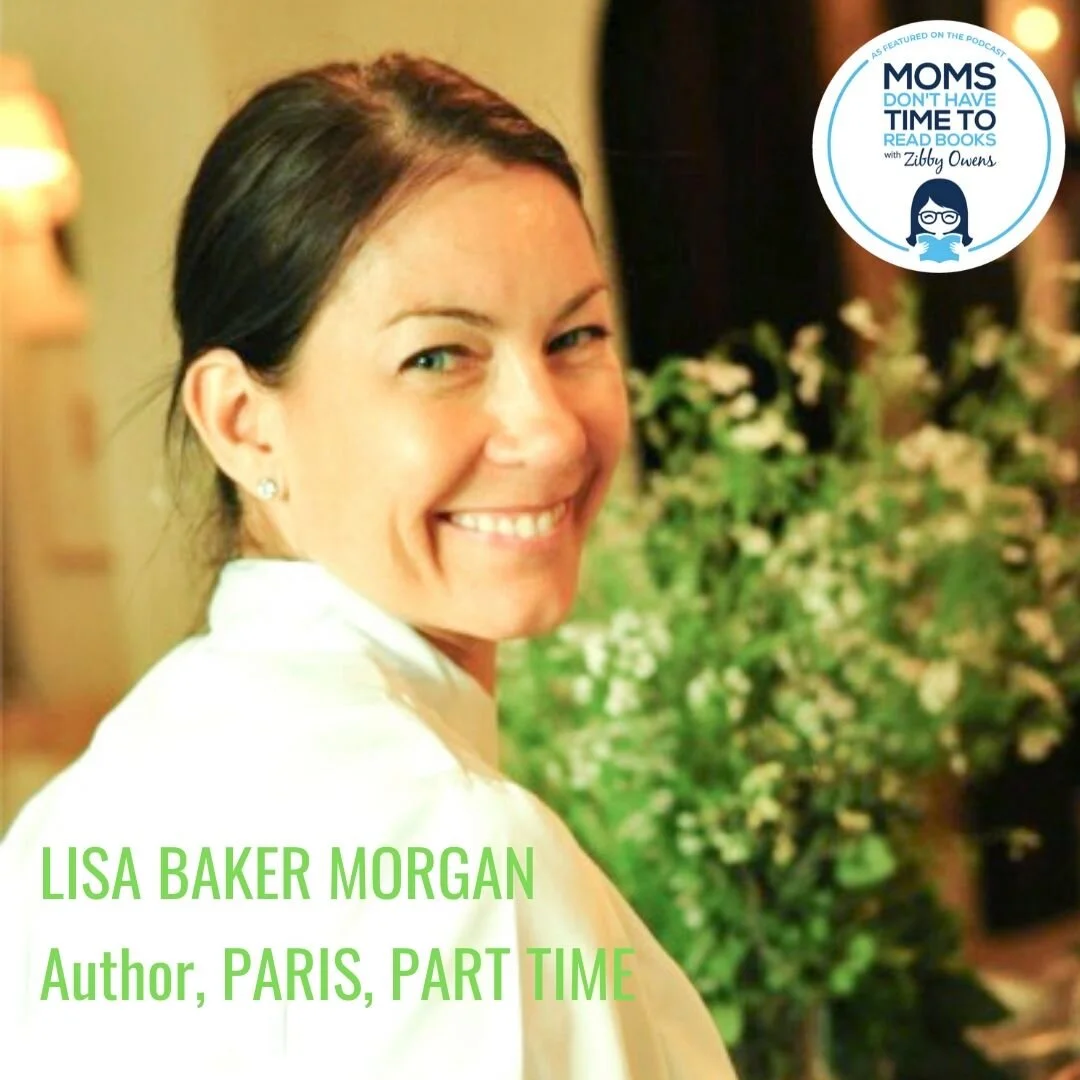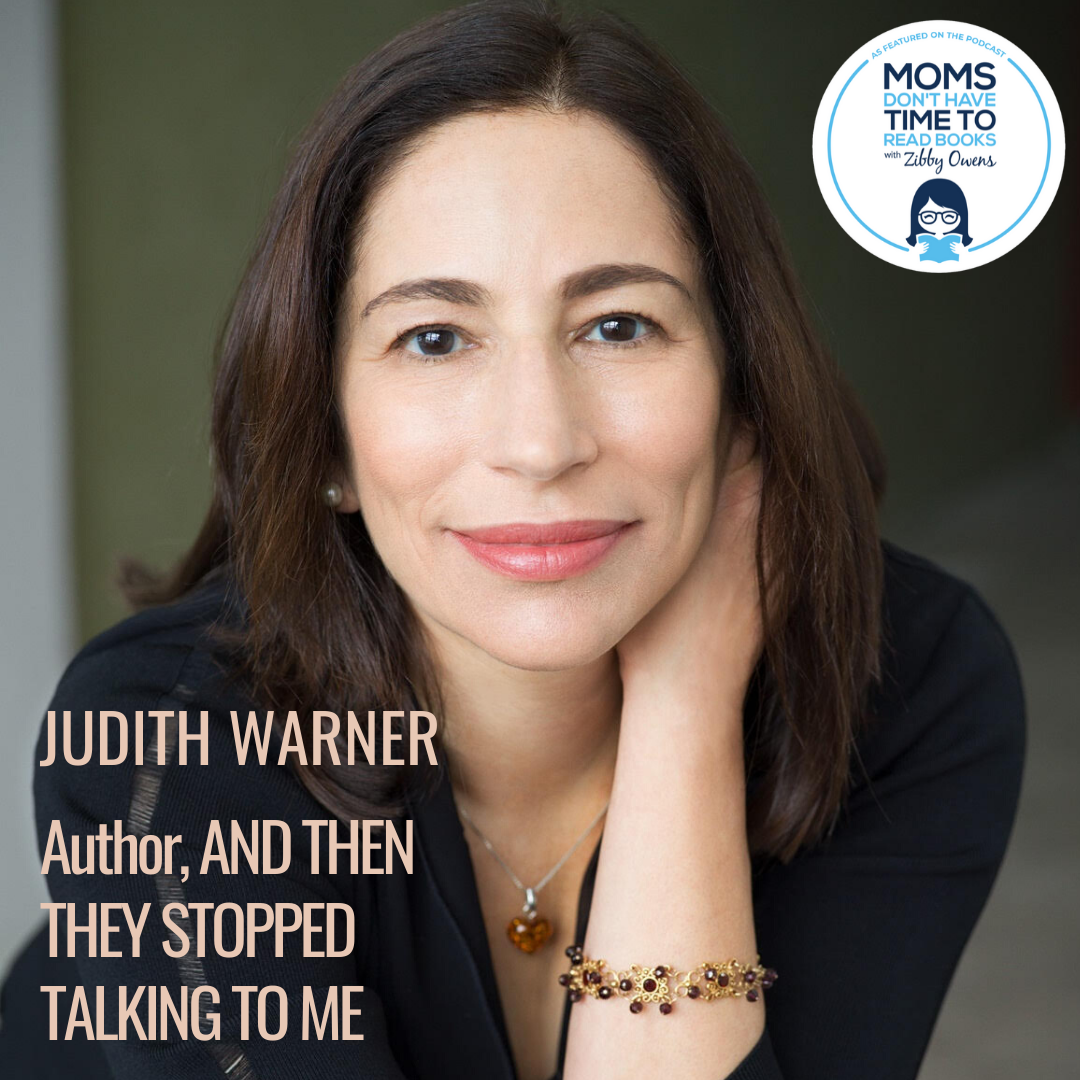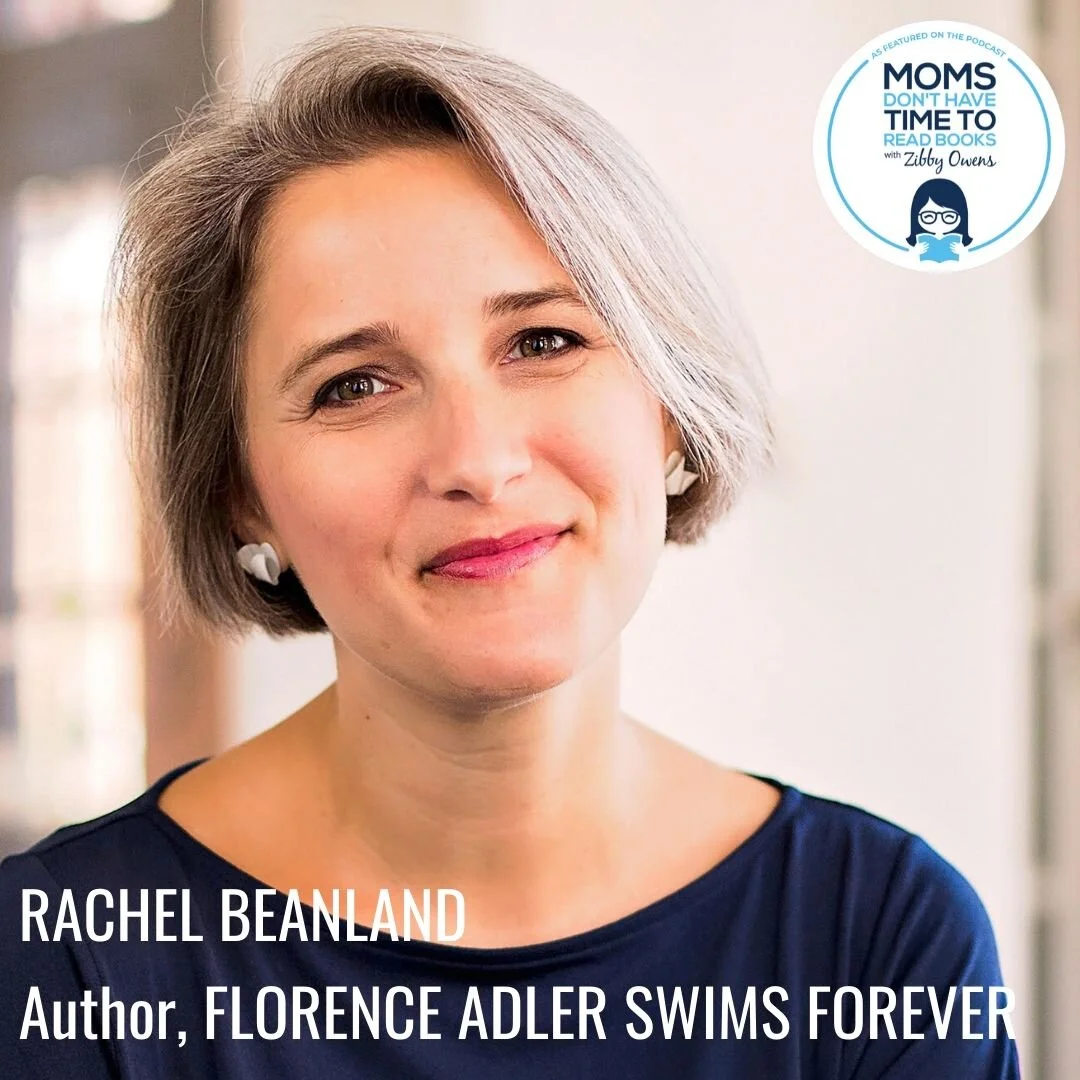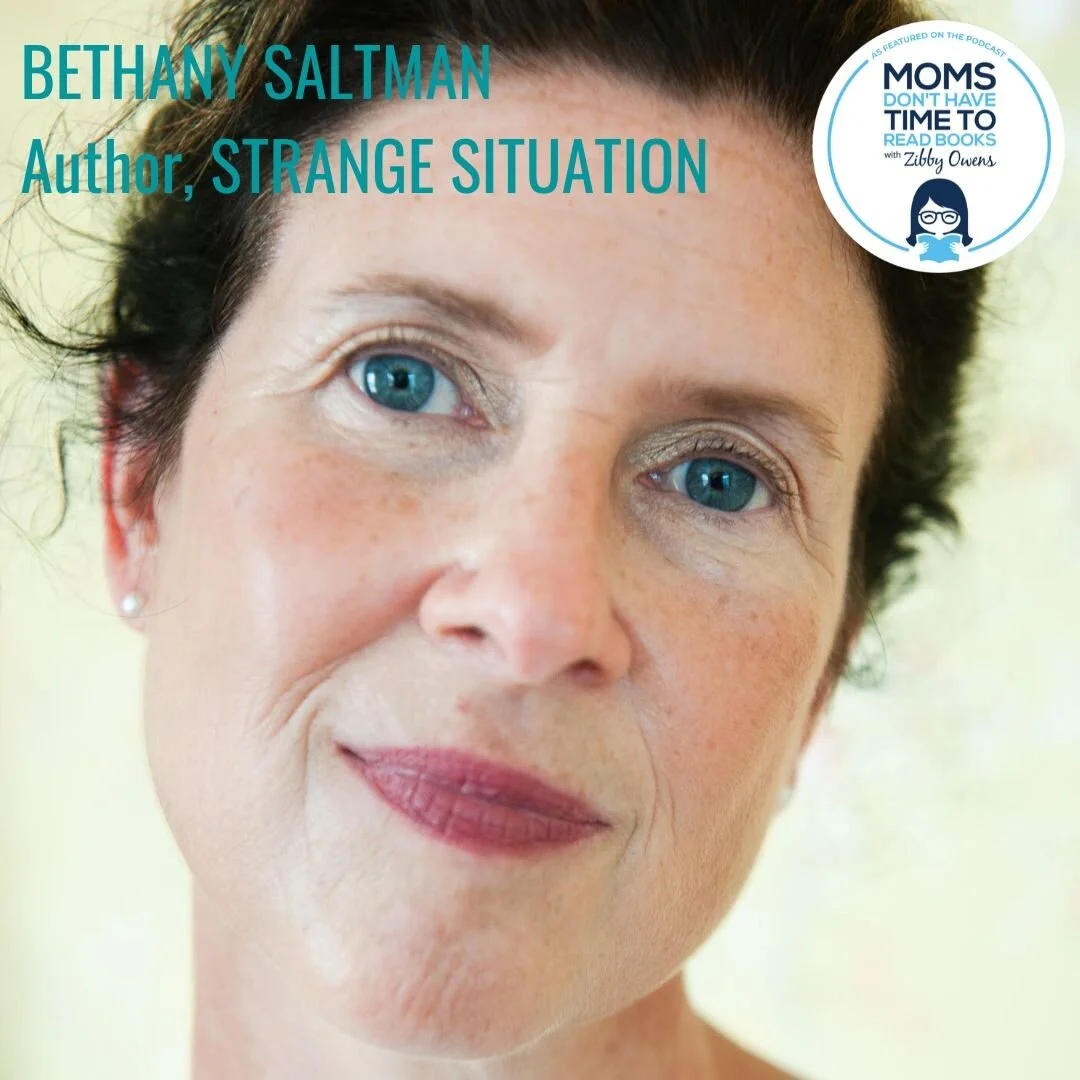Zibby Owens: Brooke Fossey was once an aerospace engineer with a secret clearance before she traded it all in for motherhood and writing. She's a past president and an honorary lifetime member of DFW Writers' Workshop. Her work can be found in numerous publications including Ruminate Magazine and SmokeLong Quarterly. Her debut novel, The Big Finish, was published from Penguin/Berkley. When she’s not writing, you can find her in Dallas, Texas, with her husband, four kids, and their dog Rufus. She still occasionally does math.
Thanks so much for coming on "Moms Don't Have Time to Read Books."
Brooke Fossey: I'm so excited to be here.
Zibby: Can you please tell listeners what The Big Finish is about? Congratulations on your debut novel. It's really exciting.
Brooke: Thank you. The Big Finish is about an eighty-eight-year-old named Duffy Sinclair. He's living his last days in peace at Centennial Assisted Living except it's all disrupted when his roommate's troubled granddaughter climbs through their bedroom window. He has to reassess his legacy and his past and make some decisions as chaos ensues.
Zibby: I was so interested that you would choose to tell a story from the point of view of an eighty-eight-year-old man. Tell me about that. How did you come up with the idea for this book?
Brooke: I always say I have an eighty-eight-year-old man living inside of me somewhere. I'm like an old [indiscernible/laughter]. Truly, I came up with the idea when I was visiting my grandpa at the assisted living. I would bring all of my kids. Like you, I have four children. It was chaos. It was controlled chaos. I did a lot of just collecting them, trying to make sure they didn't run away. I was inspired because everyone there, despite their age, had such rich histories and such fantastic personalities. I decided they all deserved a book. More than that, they deserved to be the heroes of the book. That was the seed. I loosely based my main character off of my grandpa. Josie, who's troubled but also brings a lot of joy, is kind of my kids, basically, is how it happened.
Zibby: I feel like a lot of trouble and a lot of joy is a good description of basically any kid. [laughs]
Brooke: A hundred percent.
Zibby: I saw the picture of you with your four kids seeing your book in a bookstore for the first time on Instagram. That was so great. How exciting.
Brooke: I had one teenager that was underwhelmed by it all, but what are you going to do? [laughs]
Zibby: I have two almost thirteen-year-olds. I relate to that montage. Did you give your grandfather the book? Did he get a chance to read it?
Brooke: You know what? He passed before I had finished. In fact, I think I may have finished a draft, but he did not get to see it published. I know he's smiling down on me. He's probably pretty proud.
Zibby: What was the process like writing this novel? Why write a novel now? Where did that come from in your life?
Brooke: It's really funny. I was an engineer by profession. I got two degrees in it. I worked at Lockheed on the joint strike fighter which is a [indiscernible] thirty-five plane. Then I started having a bunch of kids. After four of them, I decided I was going to stay home. I really am glad that I made that decision. At the same time, I was slowly going insane because I had four kids in five years. It was a little bit of luck here. During a naptime, I opened up my computer and I started writing. I couldn't stop. I would look forward to these naptimes because I would start going into a different world. I finished a couple books. I started to practice the craft and really get serious. It took me about ten years to get here, but it's been fun. It's basically a very late-in-life passion that I discovered.
Zibby: Wow, that's amazing. I feel like such a waste of space when I talk to so many authors like you who use their kids' naptimes to write books. I emailed. Why did I waste all those naps? I tried to catch up on thank you notes or whatever else I was doing, bills. Everybody else is sitting around writing beautiful novels or practicing the craft. [laughs]
Brooke: Well, you should see my house during that. I could've been doing something else also productive. That was my outlet. It was fun for me.
Zibby: That's awesome. How has it been? I know this is such a crazy time in the world, A, and to have a book come out, B. What has this whole process been at this stage having worked for so long to get this out into the world?
Brooke: There's been an expectation gap, obviously. I'm glad that my family and I are very adaptable. We've just kind of rolled with it. I mean, what are you going to do? You just have to accept it and keep moving. It was disappointing. We canceled the parties. We canceled all sorts of event. Then I learned how to use a lot of technology. I did more online stuff than I ever imagined. I'm well-equipped now at the house. Although, you couldn't tell it by looking at me at the moment.
Zibby: I know. I'm like, if we ever do go back to real life, now I have all these skills. Throw me on a platform and let me find my way out. Oh, my gosh. After working on that book, are you working on another novel? Are you constantly thinking of new ideas? How does the writing process look for you?
Brooke: I am working on another novel. It's cooking. I'm what they call a pantser. I don't like to plot. I just like to explore and surprise myself as I write. I hope that shows up in my writing because as you read, you might be surprised a time or two. I can't say too much about it because I'm not a plotter. I can say that there are some soap operas involved. I think it's an homage to soap operas in a way because I'm Greek American, and my great-grandmother, she learned how to speak English by watching soap operas. I've just taken that and ran with it. Very little has to do my family besides that.
Zibby: How did your family end up in Texas from Greece?
Brooke: I'm third generation, so my family has been here for a while.
Zibby: Got it. Sorry, random question.
Brooke: No, you're fine.
Zibby: I was just thinking, if I was coming from Greece, how would you end up in Texas? I don't know.
Brooke: The American melting pot is an amazing thing.
Zibby: Yes. So what kind of books do you like to read? Do you like to read fiction like this? Who are some of your role model authors or books that you've read lately that you've really enjoyed?
Brooke: I love all books, basically. Every book I read, because I never took a proper writing class, I underline a lot when I see something that's interesting. Basically, every author that I'm reading at the moment is my favorite because they're teaching me. I love Peace like a River by Leif Enger. It's one of my favorite books. I'm a Dave Eggers fan, Ann Patchett. I love Tana French. I like a lot of literary-ish novels that are accessible, is how I would put it.
Zibby: That's a good way to put it. I might steal that to describe categories of books.
Brooke: Once you add ish to something, the umbrella gets bigger.
Zibby: When you write, so you're a pantser without any outlines or anything, where do you like to write? Do you like to write at home? Are you the type of person who can write anywhere? Are you very much like, I have to be in this corner of my house? What's it like? What's your process like?
Brooke: I'm like a dog that was trained. As I was writing during naptime, it was basically quiet and it didn't matter where I was. I just had to have some time by myself. That's what it's turned into for me. I will drive a kid to practice, and I will sit in my car and do it then. I will get everyone into bed, and I will sit and do it then. My only requirement is honestly that it's quiet and that nobody's bothering me because as I write, I have a tendency to talk out loud like a crazy person. I can't go to bookstores or coffee shops. Some of my friends will invite me for little writing dates. I'm like, I can't. I look like a crazy person.
Zibby: What are you saying out loud? Are you writing it and then reading it out loud to see how it sounds?
Brooke: Yes, I do a lot of audible stuff. In the writing workshop that I belong to, we do a lot of read-alouds. I think that's also trained me just to listen to what it sounds like, what it's going to sound like to the reader, basically. To be fair, I also do a little acting, I think. [laughs]
Zibby: A little acting?
Brooke: Sure. Why not? So you can get their gestures and their tone and how they're going to say something.
Zibby: Did you end up narrating the audiobook for your own book?
Brooke: No. A really excellent voice actor did it named Mark Bramhall. He did a fantastic job.
Zibby: Probably better to be a man. [laughter] I was just thinking that you could use that skill. I actually just interviewed a voiceover actor. I was like, wow, it never occurred to me. I should've tried out for that job. There's so many jobs out there that you don't even know. It's silly.
Brooke: It's fascinating. I agree. I think I explore that a lot in my writing because my career choice has kind of taken a left turn. I do, I see so many jobs out there where I'm like, that would be interesting. Now, that would be interesting. So I feel that.
Zibby: How do you think your engineering mind works well with fiction? Do you feel like any of the strengths of that apply when you're crafting narratives? Do you think this is just another skill set and you just have different parts of your brain that jump in at different times?
Brooke: I think it's twofold. I think it helps me because I think a book is just a really long equation or a big puzzle that you're trying to put together. In that way, I feel like I'm solving a problem. On the flip side, I feel like my engineering does me a disservice because in math there's always a right answer. I can get to the end of a scene or the end of a book even and think, is this right? There's no way to know, really, because it's art. It just depends on which side of my brain is dominant at the moment.
Zibby: Wow. How great to be able to have them both. So many people are like, I'm only this type of thinker. How involved are your kids in your writing? Have they read your book? Are they really excited? Do they not really care?
Brooke: They haven't read it. I told them I would prefer them to wait only because I want them to appreciate it. I don't know that they will right now. It's not that it's inappropriate or anything like that. There's some themes that have to do with life and death. When you are a kid, you are invincible. I think that you need a little perspective to appreciate it. Generally speaking, I don't think they care. [laughs] Oh, well.
Zibby: I know. If only there was a way to get the kids to really -- I'm like, hey, guess what guys? They're like, yeah, do we have any more milk? All right, whatever.
Brooke: You're talking to a famous person? Who cares?
Zibby: [laughs] That's awesome. What advice would you have to aspiring authors?
Brooke: I think my only advice is to give yourself permission to write. This is from my own personal experience. All by itself, it feels like a very silly endeavor to sit and write made-up stuff. It does. I think that our adult brains kind of can stop us from just going there. If you want to write something and you have a story on your heart, all you have to do is give yourself permission to go ahead and start writing it. Don't worry about the critics or your inner critic saying this is silly. I have a good friend that always tell me when I'm like, "My story feels silly," or my short story, he's like, "Describe the Wizard of Oz to me." I'll say, "It's about a girl that gets sucked in a tornado and lands in a weird world." It sounds so silly if you really think about it. I think that's it. Just make your adult mind be quiet and go for it.
Zibby: You did just offhandedly mention that you wrote many novels as you were on your way to this one. You didn't even say it in a way like, it was hard, these novels didn't sell, or whatever. It sounded like you viewed them as practice. Those were just the things you had to do to get to where you were. Is that the attitude you took all the way through it?
Brooke: The writing workshop that I belong to was very informative as far as that goes. They celebrate rejection because it means you're putting yourself out there. I liken to if you pick up the violin and decide you want to play in an orchestra. You don't get to be in the pit. You have to put in the time and earn your stripes before you play. I think writing's a strange thing because everybody can write. Everybody can write a sentence. In a way, people are like, well, I could write a story, but there's a craft to it that you actually have to learn and practice before you can metaphorically play in the pit. Yeah, I wrote a bunch of books, but some of them are really terrible. They won't see the light of day, and that's okay.
Zibby: What makes a book not a terrible book in your mind? How did you fix whatever it was you felt you were doing wrong?
Brooke: I think that as you move along you start learning different parts of the craft. One book, I got really good at dialogue. Then the next book, I got really great at characterization. For me, my most difficult thing is plotting. Obviously, my pantser tendencies don't help. You just build on your skill set every time you write.
Zibby: That's awesome. Thank you so much for sharing your experience and your process and your book and all the rest.
Brooke: Likewise, Zibby. I'm so pleased to be here. When I saw you had four kids, I thought, we are kin. We're secret kin that we don't even know each other, but now we do.
Zibby: I know. I felt the same way when I read that about you. I was like, ah, okay. There's a lot we understand without even having to say.
Brooke: Yes. I love it.
Zibby: Have a great day. Thanks for coming on the show.
Brooke: Bye.
Zibby: Bye.



















